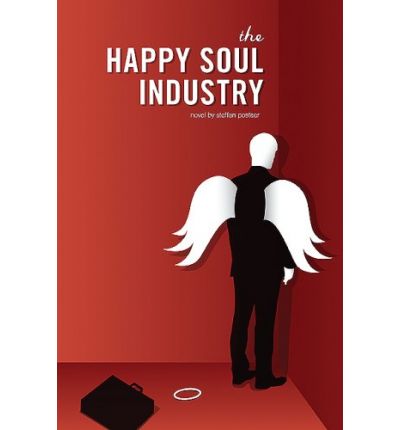Who among us has not fantasized about the ideal client?
Who among us, after a week of endless, pointless meetings in which the first item on the agenda was scheduling the next meeting, in which half the people showed up late and the other half didn’t show up at all, in which goalposts were moved, parentage was questioned, and logic ignored – who among us has not thought “oh if only our client were… well, what would be the ideal client? What brand? What category? What industry? What CMO?”
Would “goodness” have made it onto the first page of your list?
Yeah, me neither.
And to be clear, by “goodness” I’m not referring to Goodness, the fresh food and juice bar in Tucson, Arizona or the organic beauty line or even the handmade products pushed out of Wieden + Kennedy. I’m referring to the actual quality of goodness. Or, as the client, David Angelo, explains in Steffan Postaer’s novel The Happy Soul Industry:
“We are more a service enabler than a maker of products. We represent goodness in all its forms. Be it love, kindness, sharing, whatever. Maintaining this ubiquity is paramount to us. As you might imagine, we are affiliated with many known religions, past and present… Goodness or the pursuit of goodness, requires a massive overhauling of its brand image. We need to be relevant and contemporary… We want people to feel good about being good! We want an advertising campaign that encourages good acts from a society that is bereft of good acts. So, in a sense, the client is goodness, pure and simple.”
And so begins the curious journey that is Mr. Postaer’s novel, one that tries to keep one foot in the hyper-real world of advertising, where consumerism, sin, mendacity and greed are the order of the day – and the hyper UN-real world of, well, the hereafter, I suppose. Or whatever plane of existence Postaer’s supreme being lives upon, and that his main character, the aforementioned David Angelo (an angel actually, who hasn’t been on earth since the early 20th century) travels from to be the point person as agencies vie for the seemingly lucrative “Happy Soul” business.
And to be sure, as a creative always on the prowl for a new and challenging assignment, the brief – “encourage good acts from a society that is bereft of good acts” – is sort of fascinating. How would you get people to be good, not once, but over and over, as a habit of behaviour? On the one hand, it makes you think of the great work Leo Burnett did for Red Cross Portugal, or the Swedish Blood donation service program or Kevin Richardson’s Fun Theory concept for deterring speeding – but on the other hand, it’s a much broader remit because it’s not tied to a particular product and thus excitingly more challenging to anyone in advertising.
And it is the scenes, exchanges and observations around advertsing that ring the most true in the novel – as when Postaer (former ECD at gyro in San Francisco, former CCO & Chairman at Euro RSCG (now Havas), and son of RPA founder Larry Postaer) describes copywriting as “imbuing shopworn phrases with new and powerful meanings” or describes the terror of the search for a big idea or the drama around a pitch presentation or even the little quirks and nuances unique to the kinds of people you run into at an agency.
But the tension between the real and the unreal start to go a bit sideways as the book progresses, and what originally appeared to be a serio-comic novel about advertising that looked at religion, ultimately reveals itself to be – or perhaps transforms into – a science fiction thriller about religion that uses advertising merely as a mule to carry the plot along.
Thus the ending, which I won’t spoil for you, feels rather forced and contrived, even with the sci-fi caveat – as if Postaer had painted himself into a bit of a corner. Not because a satisfying dramatic resolution between good and evil is a rather large ask for any writer this side of John Milton (and thus rarely ever scoped properly by the project managers), but because of the way Postaer extricates himself and his characters from their ultimate showdown in that biggest conference room of them all (though there are still some great lines, as when Angelo wonders “Oh why had he forsaken God and come to New York?”).
However, if The Happy Soul Industry is ultimately somewhat disappointing, one still must admire Mr. Postaer’s ambition to take on the brief, his determination to keep plugging away at it even when the goalposts appeared to have shifted, and his creativity throughout. Qualities that should make any client happy.
If there’s a God…
The Happy Soul Industry by Steffan Postaer was published by Inkwater Press on 08/01/2008 – order it from Amazon here, or Barnes & Noble here – or pick it up at your local bookseller (find one here).
